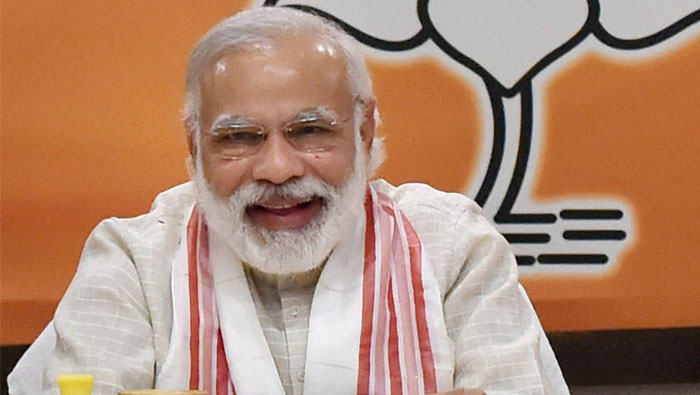
New Delhi: In a bid to open a route to landlocked Afghanistan, India will sign a contract to develop Phase-1 of Iran's Chabahar port during Prime Minister Narendra Modi's visit to Tehran beginning on Sunday.
Modi's first visit to Iran nation will also feature discussions on terrorism and extremism in the region as well as on India's desire to secure energy assets for a fast growing economy.
Also, discussions would feature the mode of clearing the $6.4 billion Indian refiners like Essar Oil and MRPL owe to Iran in past oil dues.
During the two-day visit, he will call on Iran's Supreme Leader Ayatollah Ali Khamenei, hold bilateral talks with President Hassan Rouhani and witness signing of two agreements, said Gopal Baglay, Joint Secretary (Pakistan-Afghanistan-India) in the Ministry of External Affairs.
"The visit of Prime Minister to Iran will focus mainly on connectivity and infrastructure, energy partnership with Iran, boosting bilateral trade, promoting regular consultation on peace and stability particuarly in our region and extended neighbourhood and encouraging people-to-people contacts and relations between the two countries," he told reporters.
Indian Ports Global Pvt Ltd - a joint venture between Jawaharlal Nehru Port Trust and Kandla Port Trust, will sign a contract with Arya Bandar Company of Iran for developing two terminals and five multi-cargo berth in Phase-1 of the Chabahar port project.
Chabahar in southeast Iran will help circumvent Pakistan and open up a route to landlocked Afghanistan where New Delhi has developed close security ties and economic interests.
From Chabahar port, the existing Iranian road network can link up to Zaranj in Afghanistan, about 883 km from the port.
The Zaranj-Delaram road constructed by India in 2009 can give access to Afghanistan's garland highway, thereby establishing road access to four major cities - Afghanistan-Herat, Kandahar, Kabul and Mazar-e Sharif.
He said the Indian investment in Phase-1 will be in excess of $200 million including $150 million line of credit from Exim Bank, an agreement for which would be signed too during the visit.
Besides signing of commercial contract for Chabahar Phase-1, Modi will witness signing of a trilateral agreement on transport and transit corridor among India, Afghanisatan and Iran.
On securing rights to develop the offshore Farzad-B gas field, which was discovered by ONGC Videsh Ltd, he said discussions have moved towards commercial conclusion and financial closure.
The trilateral agreement "will be a gamechanger for regional connectivity especially for Afghanistan which can find an assured and reliable alternate route to assess to India via sea," Baglay said.
The route will also significantly enhance prospects of India's connectivity with Afghanistan, Central Asia and beyond such as North South corridor, he said.
Besides, "a host of measures will be discussed to promote bilateral trade including expanding and strengthening the legal framework and more business-to-business interactions," he said adding matters pertaining to restoring effective banking channels with post-sanction Iran will also be discussed.
"Both Iran and India have stakes in peace and stability in the region which faces several challenges including terrorism and violent extremism," he said adding peace and stability in Afghanistan, on which three countries had their first trilateral consultations last month, will also be discussed.
Also, discussions between Indian Prime Minister and Iranian President will cover regional challenges and related areas including cyber crime and maritime security.
"Prime minister will thus impart a timely impetus to the ongoing efforts to bilateral cooperation and mutually benefit from new opportunities from lifting of sanctions against Iran," he added.
Asked about revival of the Iran-Pakistan-India gas pipeline with the lifting of sanctions against Tehran, he said as a growing economy India was open to considering all options for evacuating resources from Iran.
India and Iran had in 2003 agreed to develop Chabahar near Iran's border with Pakistan. But the project moved slowly because of western sanctions against Iran. The sanctions were lifted in January and since then India has been pushing for conclusion of an agreement.